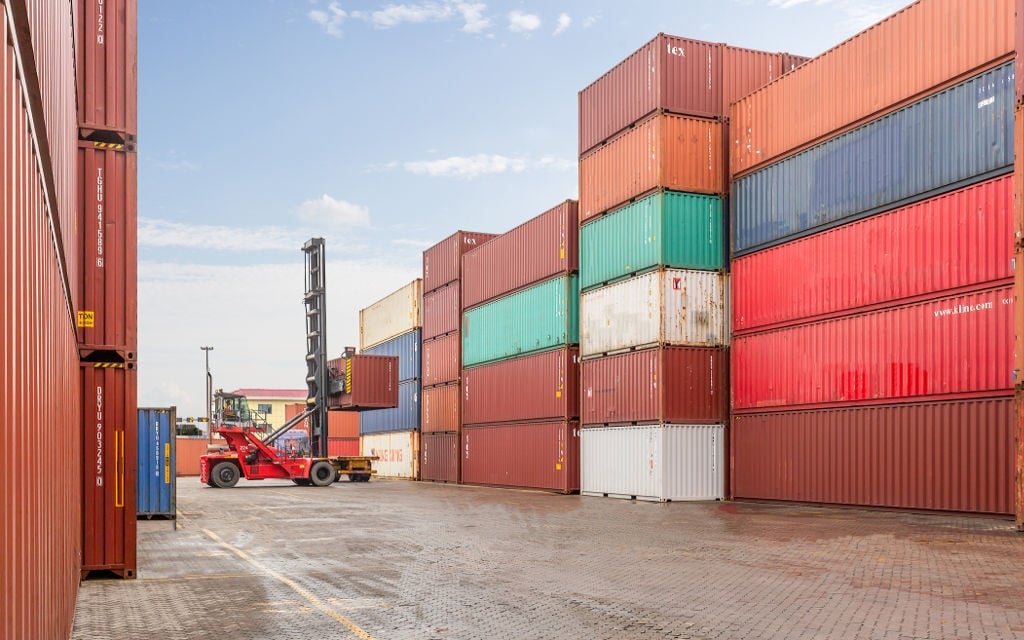
- Global trade contracted 5% during 2020, due to the impact of the Covid-19 pandemic.
- While trade is expected to bounce back in 2021, the recovery of trade volumes will be uneven and this will have implications for inflation.
- US Federal Reserve Bank chair Jerome Powell says an upward pressure of prices is expected, which will be filtered to consumers.
There is likely to be global supply chain shortages going forward, which will have implications for inflation, World Trade Organisation (WTO) Director General Ngozi Okonjo-Iweala has said.
On Thursday, during a debate on the global economy, hosted by the International Monetary Fund (IMF) as part of the multilateral organisation's spring meetings, Okonjo-Iweala shared views on the outlook for trade.
Global trade contracted by 5% in 2020, as a result of lockdown restrictions related to slowing the spread of Covid-19. Okonjo-Iweala said that trade however had been resilient, despite the challenges. For example trade of medical supplies and equipment climbed 16%. The WTO expects trade to bounce back by 8% in 2021.
But the recovery in trade is expected to be uneven. "There is considerable divergence. Imports and exports in North America and Asia will rebound faster than in sub-Sahara Africa and the Middle East. The divergence of [economic] recoveries is also reflected in the divergence in trade," said Okonjo-Iweala.
Referring to the blocking of the Suez Canal by container ship Evergreen over a week ago, Okonjo-Iweala explained that the single event created interruptions in trade across the globe. A shortage of goods is expected going forward, and this will impact inflation, she added.
"How ships move and how containers move, impact inflation differentially in different parts of the world."
US Federal Reserve Bank chair Jerome Powell, who was also part of the panel discussion, similarly shared views that upward inflationary pressures are likely, and that effects will be filtered to consumers, but this is only temporary. He explained that following 25 years of inflation being low in many advanced economies, the reopening of markets as lockdown restrictions are lifted will see a surge in demand and result in bottlenecks. He is however optimistic that supply chains will adapt.
He also assured that the Fed had monetary policy tools to guide inflation back to the target level of 2%, if necessary. "This period will show temporarily higher prices, but not persistent inflation," said Powell.
IMF managing director Kristalina Georgieva said that the multilateral institution is more concerned about inflation in emerging and developing counties, which will have to rely on monetary financing for their Covid-19 response, in the case that they run out of fiscal space. "Some for the first time are using quantitative easing, this is a very delicate instrument," said Georgieva.
For this reason the IMF wants to extend support to these countries, it is working on a proposal to boost the Special Drawing Rights to $650 billion - in order to provide additional liquidity to the global economic system.
Additionally Georgieva called for Okonjo-Iweala to be supported in reforming the trade system, as trade can keep inflation at bay.
Georgieva also lamented the unevenness of the global economic recovery, and stressed that vaccines should be widely distributed across the world. "Vaccine policy is economic policy. It is a higher priority than the traditional tools of fiscal and monetary policy, without it, we can’t turn the fate of the world economy around," she said.
Okonjo-Iweala added that if there is continued inequality in terms of vaccine access, it will take a long time to reach herd immunity on a global scale.
She explained that trade can contribute toward making vaccines more accessible, which is why a multilateral trading system can contribute much more to the international recovery.